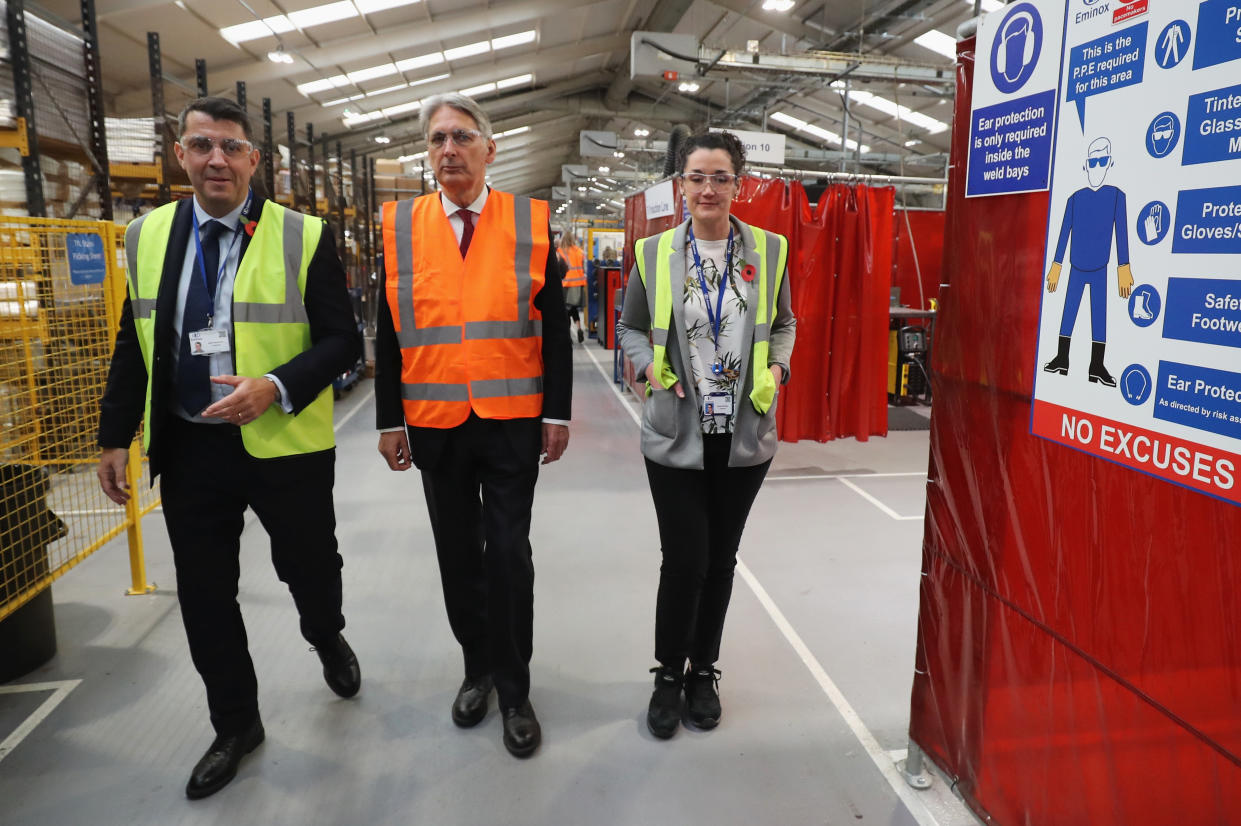The pound dives as no-deal Brexit fears hit Britain's manufacturers

The pound fell against the dollar and euro on Friday after weak data from Britain’s manufacturers sparked recession fears for the sector.
Markit’s purchasing managers index (PMI), a measure of future growth expectations, missed market forecasts for the manufacturing sector. The PMI, released on Friday morning, came in at 52.8, against a forecast of 53.5. Anything above 50 signals economic growth, while below means contraction.
Sterling was down 0.6% against the euro to €1.13 (GBPEUR=X) by lunchtime and down by 0.3% against the dollar to $1.30 (GBPUSD=X). Market analysts said the slump was down due to the poor data.
“The pound was hurt by a weaker than forecast UK manufacturing PMI and the subsequent warnings that the sector could easily slip into recession,” Connor Campbell, a financial analyst at SpreadEx, said in an email.
James Knightley, the chief international economist at Dutch bank ING, said in a note to clients: “With auto manufacturers announcing factory closures for April (bringing forward annual retooling) it implies that the manufacturing output numbers will continue to soften over the next few months irrespective of what sort of Brexit agreement is made.
“With business optimism slipping to a 30-month low, a recession in the manufacturing sector therefore looks increasingly likely.”
He added that Markit’s January survey also reported a fall in manufacturing employment for only the second time in two and a half years — another worrying sign.
Barclays said that the PMI data showed that any boost from manufacturers stockpiling parts ahead of a potential no-deal Brexit had now passed.
“Emergency planning has peaked, leaving businesses in the uncomfortable position of maintaining historically high and costly inventories until resolution of the Brexit deadlock,” analysts Fabrice Montagné and Sreekala Kochugovindan said in a note.
“Accordingly, once this short but intense inventory cycle is over (boost to growth), we expect Brexit uncertainty to turn into drag on profits, activity, and employment, adding to external headwinds (global trade, EA and Chinese slowdowns, etc).”

 Yahoo News
Yahoo News 
